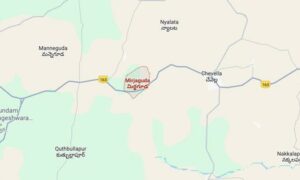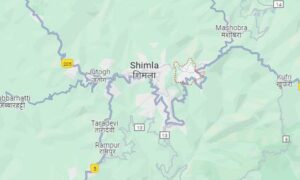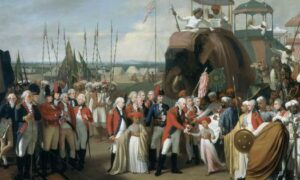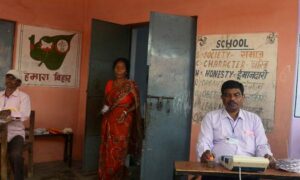
Charles Bukowski, in his book Tales of Ordinary Madness, writes, “The free soul is rare, but you know it when you see it – basically because you feel good, very good, when you are near or with them.” Earth Song: Selected Poems, written by Kanji Patel and translated from Gujarati by Dileep Jhaveri, explores the worldly material, spiritual and natural substratum to be the voice of these free souls, who often remain unheard and unnoticed. These poems bridge the gap between the oppressive world and the free one.
Home to many lives
Patel’s poems address the human desire to be free. They cut, they sting, and sometimes they simply observe. The collection gives voice to worshippers of nature, many of whom “civilised” society has forgotten, the advisasis. The poem “Come to the Village Fair”, for instance, can be considered an ode to creation. The reader is free to occupy either voice.
“The master asked:
Humans, is this enough for you?
Mankind said:
We shall revel,
play and drink,
sing and dance.The master asked:
Will you let me join?
Humans said:
Come to the village fair”— from “Come to the Village Fair”.
Earth is home to many lives. In the poem “The Pathway Speaks”, the planet asks a wayfarer to observe the river, to not restrict its freedom, and to not be a burden. The poet underscores the fact that beauty is to be experienced and not to be captured. A lonely Earth asks the wayfarer to sing to it, without wasting the brief time one gets to live.
A similar theme is addressed in the poem “Come If You Love Mud”, where the planet speaks about its body, its illness, and a grave loneliness.
“Don’t ask why I say this.
My speech is muddy,
an array of water and earth.
You are spotless and crisp.
Come if you love the mud,
come after squandering your gold.”— from “Come If You Love Mud”.
Turbulent times
It is sometimes said that the vastness within each human is mirrors the expanse the universe. In the poem “Plenitude”, the poet transforms the sun and the moon into disciplined entities. In this alternative reality, celestial objects are detached observers of human existence. “O Mountain Deity”, on the other hand, is a direct invocation to the deities worshipped by the adivasis. The call of the worshippers is that of guilt and remorse, as they declare their willingness to sacrifice their bodies and souls.
“We shall slay a goat.
If the tribute reaches you,
makes an avowal.If the scales of sweat
and stipend are squared
then accede the offering.”— from “O Mountain Deity”.
We live in turbulent times, where promises are devices of manipulation. In “Deception”, the poet invokes the feigning of ignorance and neglect of humanity by the politically powerful. He writes, “Making people jest and play / he snatched their speech / and promptly hid it.” Addressing unmerciful inequality, Patel writes, “To temper their hearts, / half the horde turned euphoric / and the other half sobbed.”
“The gates are open
and you can enter anytime
just ring the bell for any grievance.At midnight,
he fenced with barbed wire,
the route to his palace
and hammered sharp spikes.”— from “Deception”
Dileep Jhaveri’s translation is not a mirror of the original text. Rather, it is a reflection capable of carrying its own identity. The translated verses flow without eroding the poet’s objective. Earth Song: Selected Poems is a study of human nature, its evolution and devolution, and the complexities that we create by ignoring the simple story of nature. In these poems, the advisasis are not victims – in fact, they are the most radical protectors of nature. Nature acts as the fuel that can bring order to our times, even if it is difficult and time-consuming. Kanji Patel is an important poet because he keeps hope alive.
Earth Song, Kanji Patel, translated from the Gujarati by Dileep Jhaveri, Red River Press.
📰 Crime Today News is proudly sponsored by DRYFRUIT & CO – A Brand by eFabby Global LLC
Design & Developed by Yes Mom Hosting






